#Fantasy writer
Explore tagged Tumblr posts
Text
‧⋆‧₊˚✧Perci✧˚₊‧⋆‧
A Character Introduction


“…It sure seems like a huge world out there. I can’t wait for it to show me everything that it’s worth! Nothing is holding me back now.”
⋅•⋅⊰∙∘☽ ☆ ☾∘∙⊱⋅•⋅


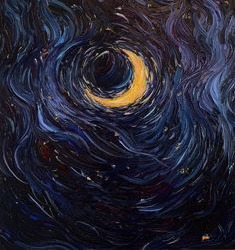
‧⋆‧₊˚✧Information✧˚₊‧⋆‧
Name: Perci D’raah Tarros
Nicknames: Perce
Gender: Male
Pronouns: He/Him
Orientation: Demiromantic-Heterosexual
Age: 21
Birthdate: November 11th
Birthplace: Bostad, Pytharios of Khri
Species: Iceling-Elf
Occupation: Member of the Queen’s Army, rank Rooke
Education: Educated at the Queen’s Academy for Young Learners of Magic in Haukrosen, Pytharios of Khri
Current Residence: Haukrosen, Pytharios of Khri
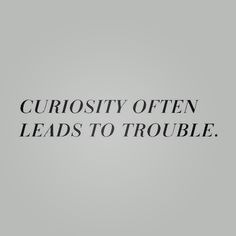
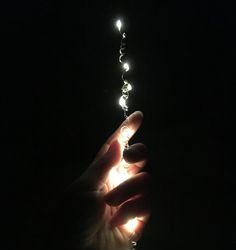
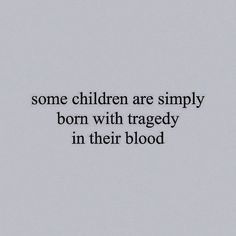
‧⋆‧₊˚✧Personality✧˚₊‧⋆‧
Perci Tarros can be quite an outgoing and bright spirit. Staying calm during intense situations and having limitless courage to take anything he wants exemplifies this trait. He is also inquisitive, a bit too much for his own good. As well, he can be very overconfident about his abilities and put way too much trust in himself. He can always be seen getting into some kind of trouble, albeit unknowingly. But, due to his quick wit and endless creativity, he manages to squeeze out any trouble that comes his way. He is one to always question the why of things and how they happen, despite never really outgrowing the naive child who doesn’t question further. Because of that, he believes everything that is told to him by a trusted authority figure. Thankfully, he hasn't been led astray or down dangerous paths, but into becoming the best he can be. Though, maybe as he develops his worldview, he can stand strong on his own.
MBTI Type: ENFJ-A
Alignment: Lawful Good
Likes: His family, his friends, expanding his worldview, providing for people, his growth, doing things that he is good at only, excelling in new things, the stars in the night sky, sparring with others, and learning about the world around him
Dislikes: Bossy people, doing things he is bad at, burnout, liars & manipulators, and jerks
Goals: Prove himself to others and himself that he is just as capable as the rest of them and to improve to be the best he can be, learning everything he can about these strange new areas he is exploring on their journey
Hobbies: Practicing his spells (better known as Allurements & Virtues), venturing out in the woods beyond in search of new things, astronomy & stargazing, and cooking
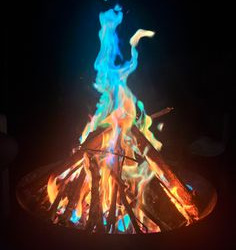

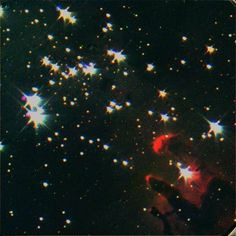
‧⋆‧₊˚✧Appearance✧˚₊‧⋆‧
Height: 5’ 10” or 177cm
Weight: 135
Build: Long and lanky; with quite of bit of muscle mass, but not enough to not get underestimated on his immense skill in magic
Hair: Tousled, brilliant white hair with flowy bangs that obscure his forehead, the back of his hair is much longer than the front, capping off at his shoulders
Eyes: Strikingly blue in color and rather sharply set, thirsting for answers
Skin Complexion: A pale blue, one that blended in perfectly in the ice surrounding him, with small spots of youthful blush on his cheeks and nose
Scars: None
Piercings: 2 small spikes on each ear that jut out on the top of his ear, along the edge
Tattoos: No tattoos but he wears black ceremonial face and body paint that stains his skin, called Rekkala, located on his forehead, down his sloped nose, under his eyes, across his cheekbones, & covering his neck, and spiraling down his arms, ending on his lower back.

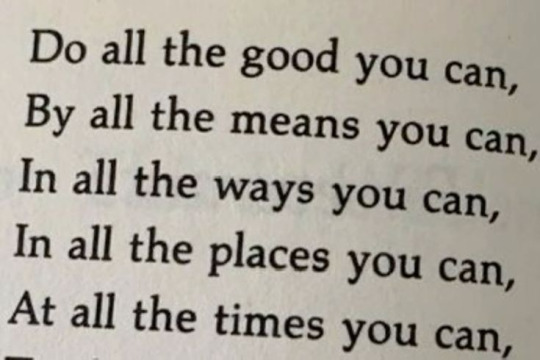
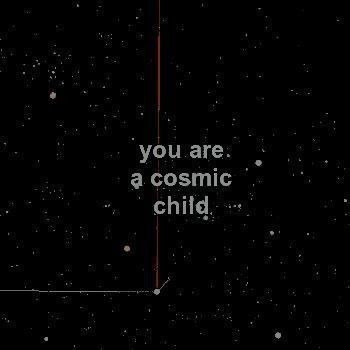
‧⋆‧₊˚✧Extra✧˚₊‧⋆‧
Want to see more Perci?
More here!!
Check out the story here!
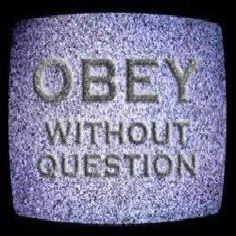
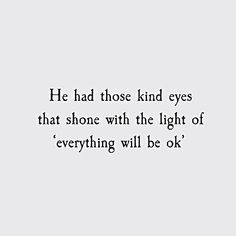
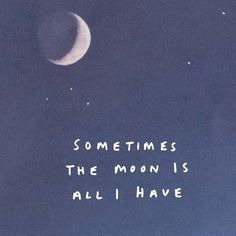
⋅•⋅⊰∙∘☽ ☆ ☾∘∙⊱⋅•⋅
Taglist: (interreact with this post here to be +, notify me if you want to be -)
@seastarblue @seafloor507 @stars-forever @viridis-icithus @estrellasxxminis @synthesistoagreatercreation @ink-stains-and-constellations @wyked-rebellion @satohqbanana @amatowriting @riverstixx @theodora47 @selfemployedmess @thebookishkiwi @17panicattacksinatrenchcoat @memento-morianon @the-ellia-west @write-with-will @jwritesalright @sunflowerrosy @myniceisniceblogbloglog @corinneglass
#writeblr#writers on tumblr#writing#writing community#writers#writer#creative writing#writers of tumblr#fantasy writer#tumblr writers#fantasy#fantasy writers#original character#character art#character design#character intro#character introduction#oc#oc intro#oc drawing#oc art#tbbc#the bone binder's covenant#tumblr writing community#ocs#my ocs#oc artist#writing a story#TBBC: Perci
40 notes
·
View notes
Text
Alternatives for "She Smiled"
If you can't seem to find an alternative for this common phrase "she smiled". here's a list of different sentence variations.
She beamed brightly.
Her lips curled into a smile.
She flashed a radiant grin.
A smile lit up her face.
She offered a sheepish grin.
Her smile twinkled mischievously.
She gave a soft, serene smile.
A wry smile played on her lips.
She smirked subtly.
Her smile spread slowly across her face.
She smiled wistfully.
A gentle smile graced her features.
She smiled with her eyes.
Her smile was tinged with sadness.
She bestowed a gracious smile.
Her smile glimmered in the dim light.
She smiled coyly.
A giddy smile bubbled up.
She smiled, lips parting lightly.
Her smile was infectious.
She gave a knowing smile.
A tentative smile flickered across her face.
She smiled, eyes sparkling with delight.
Her smile warmed the room.
She smiled ruefully.
A conspiratorial smile crossed her face.
She smiled, a trace of irony evident.
Her smile was wide and welcoming.
She flashed a quick, evasive smile.
She smiled as if recalling a sweet memory.
#creative writing#on writing#writers block#writing tips#writing#writers and poets#how to write#thewriteadviceforwriters#writers on tumblr#writeblr#authoradvice#author#authors of tumblr#writerscommunity#short story#writer#women writers#creative writers#helping writers#writerblr#writers#writerslife#writersociety#young writer#ao3 writer#resources for writers#female writers#fantasy writer#writing life#english
4K notes
·
View notes
Text
Principles and Laws of Magic for Fantasy Writers
Fundamental Laws
1. Law of Conservation of Magic- Magic cannot be created or destroyed, only transformed.
3. Law of Equivalent Exchange- To gain something, an equal value must be given.
5. Law of Magical Exhaustion- Using magic drains the user’s energy or life force.
Interaction and Interference
4. Law of Magical Interference- Magic can interfere with other magical effects.
6. Law of Magical Contamination- Magic can have unintended side effects.
8. Law of Magical Inertia- Magical effects continue until stopped by an equal or greater force.
Resonance and Conditions
7. Law of Magical Resonance- Magic resonates with certain materials, places, or times.
9. Law of Magical Secrecy- Magic must be kept secret from the non-magical world.
11. Law of Magical Hierarchy- Different types of magic have different levels of power and difficulty.
Balance and Consequences
10. Law of Magical Balance- Every positive magical effect has a negative consequence.
12. Law of Magical Limitation- Magic has limits and cannot solve every problem.
14. Law of Magical Rebound- Misused magic can backfire on the user.
Special Conditions
13. Law of Magical Conduits- Certain objects or beings can channel magic more effectively.
15. Law of Magical Cycles- Magic may be stronger or weaker depending on cycles (e.g., lunar phases).
17. Law of Magical Awareness- Some beings are more attuned to magic and can sense its presence.
Ethical and Moral Laws
16. Law of Magical Ethics- Magic should be used responsibly and ethically.
18. Law of Magical Consent- Magic should not be used on others without their consent.
20. Law of Magical Oaths- Magical promises or oaths are binding and have severe consequences if broken.
Advanced and Rare Laws
19. Law of Magical Evolution- Magic can evolve and change over time.
20. Law of Magical Singularities- Unique, one-of-a-kind magical phenomena exist and are unpredictable.
Unique and Imaginative Magical Laws
- Law of Temporal Magic- Magic can manipulate time, but with severe consequences. Altering the past can create paradoxes, and using time magic ages the caster rapidly.
- Law of Emotional Resonance- Magic is amplified or diminished by the caster’s emotions. Strong emotions like love or anger can make spells more powerful but harder to control.
- Law of Elemental Harmony- Magic is tied to natural elements (fire, water, earth, air). Using one element excessively can disrupt the balance and cause natural disasters.
- Law of Dream Magic- Magic can be accessed through dreams. Dreamwalkers can enter others’ dreams, but they risk getting trapped in the dream world.
- Law of Ancestral Magic- Magic is inherited through bloodlines. The strength and type of magic depend on the caster’s ancestry, and ancient family feuds can influence magical abilities.
- Law of Symbiotic Magic- Magic requires a symbiotic relationship with magical creatures. The caster and creature share power, but harming one affects the other.
- Law of Forgotten Magic- Ancient spells and rituals are lost to time. Discovering and using forgotten magic can yield great power but also unknown dangers.
- Law of Magical Echoes- Spells leave behind echoes that can be sensed or traced. Powerful spells create stronger echoes that linger longer.
- Law of Arcane Geometry- Magic follows geometric patterns. Spells must be cast within specific shapes or alignments to work correctly.
- Law of Celestial Magic- Magic is influenced by celestial bodies. Spells are stronger during certain astronomical events like eclipses or planetary alignments.
- Law of Sentient Magic- Magic has a will of its own. It can choose to aid or hinder the caster based on its own mysterious motives.
- Law of Shadow Magic- Magic can manipulate shadows and darkness. Shadowcasters can travel through shadows but are vulnerable to light.
- Law of Sympathetic Magic- Magic works through connections. A spell cast on a representation of a person (like a doll or portrait) affects the actual person.
- Law of Magical Artifacts- Certain objects hold immense magical power. These artifacts can only be used by those deemed worthy or who possess specific traits.
- Law of Arcane Paradoxes- Some spells create paradoxes that defy logic. These paradoxes can have unpredictable and often dangerous outcomes.
- Law of Elemental Fusion- Combining different elemental magics creates new, hybrid spells with unique properties and effects.
- Law of Ethereal Magic- Magic can interact with the spirit world. Ethereal mages can communicate with spirits, but prolonged contact can blur the line between life and death.
- Law of Arcane Symbiosis- Magic can bond with technology, creating magical machines or enchanted devices with extraordinary capabilities.
- Law of Dimensional Magic- Magic can open portals to other dimensions. Dimensional travelers can explore alternate realities but risk getting lost or encountering hostile beings.
- Law of Arcane Sacrifice- Powerful spells require a sacrifice, such as a cherished memory, a personal item, or even a part of the caster’s soul.
#writer#writing#writer things#writerblr#writerscorner#writing inspiration#writing tips#author#writers and poets#ao3 writer#writeblr#fantasy writer#sci fi and fantasy#writing inspo#writing resources#dnd campaign#dnd character#character development#original character#amwriting#writers community#writer stuff#writing blog#writers block#writerscommunity#worldbuilding#world building#fantasy series
5K notes
·
View notes
Text
Worldbuilding and Magic Systems: Things to Consider
Have a magic system in mind for your fantasy world? Here's a list of things to consider to help you tie this system into the rest of your worldbuilding, so that it feels more believable and realistic.
Source
What is the source of magic? Is it natural or man-made? Can humans use magic or is it a force of nature that only animals or other races can use?
Does magic originate from inside a person or does it require external items to use? If it comes from items, can the items be made? How long does it take to make the items?
Does the magic cost anything- money, stamina, health, etc.?
Can a person be cut off from being able to use magic? If so, how?
Prevalence
How common is magic in your world? Is it so common that everyone has seen it or is it a subject of myths and rumors?
How long have the people in your world known about magic? Has it always been there or is it a new discovery?
How much does the average person know about magic? How much do experts know? What do people not understand about this magic? Are there any common misconceptions? Myths?
Is magic revered or feared? Or if it's common, is it taken for granted? Are there any taboos surrounding magic?
How many types of magic are there? Are some more common than others?
Are there dedicated schools of thought surrounding the study of magic? Is it taught about in schools? If so, is it taught to children or only at the college (or equivalent) level?
Accessibility
Who can use magic? Who can't? Is it something that only the rich and powerful can use? Why? Or do genetics determine who can use it? Wealth?
Are there any physical limitations that might restrict who can use magic? For instance, maybe old or sickly people can't use magic because it requires a lot of physical effort. Does your society provide accommodations for people who can't use magic? Is a lack of magic ability considered a disability?
Does education level determine capacity for magic?
How easy is it to gain access to magic? How easy is it to learn about magic?
Power/Usefulness
How powerful or useful is magic for different parts of society? Military? Medicine? Entertainment? Art? Childcare? Government? Communication? Business?
How does magic affect the politics of your world? How does it shape the economy? Are there feuds over the use of magic? Do powerful groups in your world have an incentive to limit the use and accessibility of magic? Why?
What happens when people no longer have access to magic? Does this cripple their ability to go through their daily lives? How?
Mix, match, and cross-reference these with other elements of your worldbuilding to form a believable magic system that lives and breaths just as the rest of your world does. For every answer you give to the questions above, consider and build upon the implications of what that might mean for your world. A worldbuilder's best skill is the ability to ask "How will this affect ___?" So make sure you're always considering the ripple effects of each element you add to your world.
Happy worldbuilding y'all!
#creative writing#writing#writers on tumblr#writerscommunity#writing advice#writeblr#writing tips#fiction writing#writing help#fantasy worldbuilding#worldbuilding#fantasy writing#fantasy writer#fantasy novel#fantasy#magic#magic system
1K notes
·
View notes
Text
13 fantasy - Romance themed love tropes
Fated Mates: Characters are destined to be together by supernatural or magical forces.
Magical Bond: Characters share a mystical connection that binds them together, often influencing their emotions and actions.
Creature and Human Romance: A romantic relationship between a mythical creature (such as a vampire, werewolf, or fae) and a human.
Royal Romance: Characters from different social classes or kingdoms fall in love, navigating the complexities of power and duty.
Forbidden Love in a Magical Realm: Romance between characters of different magical species or factions, facing prejudice and persecution.
Rescuer and Rescued Romance: One character rescues the other, leading to a deep bond forged through shared experiences.
Magic-induced Love: Characters fall under the influence of a love spell or potion, complicating their romantic feelings.
Immortal and Mortal Romance: A romance between an immortal being and a mortal, grappling with the challenges of mortality and eternity.
Elemental Romance: Characters representing different elements (fire, water, air, earth) find love, symbolizing balance and harmony.
Shape-shifter Romance: A character with the ability to change form falls in love, exploring themes of identity and acceptance.
Guardian and Ward Romance: A romantic relationship between a guardian figure (such as a mentor or protector) and their charge, built on trust and loyalty.
Cursed Love: Characters cursed to be apart or cursed to love each other, seeking a way to break the curse and be together.
Ancient Prophecy Romance: Characters fulfill an ancient prophecy together, their love playing a crucial role in the fate of the world.
#writing#writer on tumblr#writerscommunity#writing tips#character development#oc character#writing help#creative writing#fantasy writer#fantasy romance#romance tropes#tropes#writing block
2K notes
·
View notes
Text
My new favourite thing is when I reread my own writing and realise I accidentally foreshadowed something important
Wait sorry “accidentally” was a typo it should have been “geniusly and with considerable forethought knowing exactly what was going to happen and all of my intentions being very clear”
#writing#fantasy writer#writer problems#writing a book#writers#writer#female writers#writers on tumblr#writerblr#writeblr#writers block#writer things#books#fantasy books#writing books#booklover#booksbooksbooks
3K notes
·
View notes
Text
A Whole New World - Short Orc Romance
- When your Orc found you, you were in your Church with your other sisters of the cloth.
- They all prayed to the Gods.
- Gods that they wished would come, strike down these beasts who threatened your lives.
- The Church doors were difficult to get open, but your Orc did it. The doors burst off the hinges, crashed into the pews.
-Your sisters all took off running, leaving you behind.
- You tried to follow, but ended up tripping over your robes, falling on your front.
- Your Orc stormed towards you.
- You try to scramble away, desperate to escape your oncoming death, but it was no use.
- He was too big, too quick.
- You close your eyes, expecting a bludgeoning with that horrifying club he had clutched in his hand. You raise your hands above your head and cower for your life.
- Any moment now, any second now, he is going to bring that club down on your head.
- But nothing came.
“They left you.”
You squint open your eyes. Between your arms, you stare at him. His expression pained, his endless black eyes staring at you with… sympathy? You couldn’t understand what you were seeing; An orc, sympathetic?
The club slips from his hand, landing on the floor with a loud thud. Stooping to one knee, he bends down to your height. “Those who you called sisters have abandoned you.”
You dare to look around. Hoping to see a sister who was hiding behind the altar, a pillar, or anywhere. With some kind of weapon in hand, anything to help you get out of this situation alive. But it was barren. Empty of any kind of life whom had been begging for salvation.
He was right. They had. “To escape you, you who would kill me for praying for your death.” You hiss back at him. You didn’t dare believe him, wanted to retreat back into the collective opinion about Orcs. But it was too obvious to ignore his logic.
The words were harsh and sharp, the Orc did not flinch. “And who is here for you, now that I have come to take the lives of your people? Your Gods? Who you pray to, but have done nothing to protect you or your people from the raid of my brethren? Did not even force a fellow sister to stay and share in your fate, so that you would not have to go into the night alone?”
The words rang through you like the Church bell at the top of the steeple. Rooted you to the ground, the world you had built to protect yourself from the truth, crashed and burned. You couldn’t deny that he was wrong. Your so-called ‘sisters’ had abandoned you. Left you here at the mercy of this monster, not one of them had turned to try and help you back up.
A sigh escapes the Orc. “In our ranks,” he says, “we do not abandon our own.” The hand that held the club outstretches toward you. “Come. No one deserves to left alone.”
Anger had risen, spiteful and raging within your very soul. At that moment, as much as you didn’t want to admit it, the Orc was right. Your mind drifts back to what the Church had taught you about them, the Orcs. That they were monsters, born from the core of the Earth. Where Magma bubbled and boiled, where nothing should be able to survive. How your Church commanded that your sisters swear loyalty to one another. To protect each other and Holy Ground from defamation of the filth that rose from the Earth. To do it together. To die together, if it came to it.
The Gods had abandoned you and your sisters had left you. You gave your life for Gods who did not care.
This Orc, monster of the deep Earth, had shown you more decency in that moment. Than Gods or humans had done in the time you had been at the Church. Spite riddles through you. You take his calloused, rough hand.
- Travelling in an Orc caravan was not easy. They were loud, smelly and stupid. All except the Orc who had come for you.
- He was quiet, preferred to watch his others fight, drink and be rowdy with one another.
- At first, the rest of the group had ostracised you. “Humans are no good.” They would snarl. “Weak and useless.” But, after repairing a few of their clothes and cooking meals, they warmed up to you.
- They were kind to you... In their own way. Like the time when they left a whole dead sheeps’ carcass in your tent. The note left with it read: “For dinner this eve. Make or else.” Panicked, you went to find your Orc friend, who explained that this wasn't a threat. Far from it, as a matter of fact.
- They spoke to you that way because they spoke to their own like that.
- "My bretheren see you as one of us now." Rovi - the name of your Orc friend - explained.
“They’re quite the group.” You observe. You had thrown out your robes as soon as you could and replaced them with something that was far from Holy. Trousers and tunic that you had sewed together yourself and hair let down to your waist.
“Indeed.” Rovi agrees. He slurps the rest of the soup from his bowl. Fire crackles in the fire pit, the nights sky blankets the whole group of Orcs who proceed to play fight and snarl. This was apparently, a common pass time for Orcs, who beat the living snot out of each other as a show of comradery. “They will never hurt each other though.” Rovi assures you, putting the bowl beside himself. “We do not do that, unlike humans who abandon their own, kill their friends and steal for survival.”
You did not judge his impression of humans. Surely, you’d feel the same way too if a bunch of humans started chasing after you, desperate for your head. One thing, you could not understand for the life of you, was why Rovi had taken you in. Despite his obvious dislike for humans, he still offered you a place in his camp. Maybe It was as simple as he said: “No one deserves to left alone.”
Biting your lip, you tell him, “thank you for inviting me into your camp.” You meant it. If it weren’t for him, you would still be slaving away for Gods who had no interest in you.
Your Orc huffs, “better than being with humans who abandon their own.” He looks away from you. Back to the jeering crowd of his fellows, watching them clasp each others hands and pat each other on the back. A show of congratulations on a good fight.
- Your romance with him started when there was when you returned to your own tent.
- On your bed, was a small pouch of gold.
- Being in an Orc camp, you observed their customs and cultures. Often, when courting others, they would leave a small bag of gold in their crushes living quarters. A sweet, but simple gesture. Orcs loved their gold, even if they did not flaunt it. To do so was, frowned upon and compared to the Lords who wore those stupid puffy trousers and powdered tall wigs.
- You did not know who the pouch had come from, but you immediately thought that your Orc friend had been the one to do it. But you had to double check. And so you would gauge his reaction to it.
“Look!” You rushed over to him. Waving the bag of gold up to him, you beamed, “someone likes me! I found it on my bed when I got back from washing in the river!”
Rovi, returning from a hunt and carrying a, poor dead stag on his back, looked at you, then the open bag, gold glittering in the sunlight. “Was there a note?” He asked you, dropping it to the ground.
The rest of the hunting party grumbled annoyances at him, dragging the meat away. Rovi ignored them.
“No, there was just this bag. I wonder who it could be!” Your eyes dart across the camp, looking to the cooks, who were now busy skinning the stag, to other Orcs who were busy tending to a fire and talking in their mother tongue and to those who were busy trying to read from tiny human books they stole from villages.
“Best not to think about it,” Your Orc mutters. “Small pouch of gold like that? They can’t be that interested in you.” And with that, he lumbers off.
You frown. You thought for sure it would be him. His reaction made your heart sink in your chest. Sighing, you walk back to your tent, tossing the small bag onto your desk and clambering onto your bed. You sigh. If it was not him, then who could it be?
Unfortunately, you had noted that there was a fair amount of guess work that had to happen when it came to this as well. Usually, it went over well – the admired knew who their admirer was, and they got together. But, in rare instances, where the admired got their guess wrong: The admirer would challenge the guessed person to combat and they would fight. Not a play fight. An actual battle.
It was rare, but not rare enough to avoid being discussed by the rest of the camp. You had never seen one yourself, and if you could, you’d like to avoid it at all costs. You like everyone in the camp, care about them all , you didn’t want anyone to get hurt. One had to assume, that if two Orcs vied for the same person... You didn't want to think about that.
- You had thought long and hard about who it could be. You had become close with everyone in the camp, it wasn’t like there was anyone who stuck out to you.
- Truth be told, disappointment stirred in your gut.
- You had hoped that it would Rovi who had been the one to give you that pouch. He was kind and caring, even if he was a bit rough around the edges. He gave you a whole new life, it seemed almost right that you would fall for him. After he was able to show you the rest of the world, when you may have stayed with the Church for the rest of your days.
- The next day, you went to go and do what you had to do by the river, coming back to your tent and your jaw dropping.
A pouch – you couldn’t even call it that – a sack full of gold had spilled out onto the floor in your tent. You wondered if you’d gone mad. Startling you, a cheer erupted from outside your tent. What the Hell is going on?!
You ran out and into the main area, where a ring of tall, hulking Orcs had formed. You stood on tip-toes, jumped to try and get a look at the brawl that had just started, but had to resolve to pushing your way through the rambunctious crowd. Once the other Orcs realize who it was trying to get through, they bark at their others: “Get out of the way! Let (Y/N) through! It about her after all!”
About you? More desperate now, you finally found your way to the edge of the ring just in time to see Rovi swing a right hook, directly into the jaw of his other. The other Orc goes flying, his landing in front of you sent shudders through the floor. You recognise him immediately as Barrow, a chef who you often spent time with in the kitchens. He was an Orc of very little brains, but he made a mean rabbit stew. He made some inappropriate jokes to you occasionally, but apart from that, he kept mostly to himself.
“That’s all you offer?!” Rovi roars, “pathetic!”
Barrow was out cold, your Orc friend’s chest heaving up and down. “What’s going on?!” You shout over the jeering Orc crowd.
Rovi’s face, goes from a furious, angry scowl, to soft at the sight of you. Rather harshly, he kicks Barrow out of the way and kneels down to your height. “I’m afraid I haven’t been up front with you,” he begins.
The rest of the Orcs are still watching, but now quiet. Your ears rang with the silence, so used to their loud and obnoxious shouting that it was unsettling to hear silence.
“I know that humans are more upfront with their courting practices so allow me to conform to your culture… And I couldn’t allow Barrow to offer you something so insignificant and small as one pouch of gold… So... Would you be mine, (Y/N)?”
Stunned into silence, you bit your lip. Smiling, you ask, “so the extra large sack of gold was you?”
Rovi grumbles and looks away from, a small dusting tinge dusting his orc green cheeks. “Well, I had to do something…” He mumbles. “I had to do something to show you I am superior… if this one hadn’t beaten me to it.” He shoots another dirty look at Barrow, who seems to have awoken in a daze. “The combat was necessary to tell him to back off.”
“I think the gold was more than enough.” You wrap your arms around his muscular shoulders and pull him close. “Thank you for everything, Rovi.”
He freezes for a moment and then returns your gesture, holding you tenderly in that moment. The both of you don’t even hear the crowd of Orcs erupting with cheers and shouts of happiness.
It’s just the two of you. And that’s all that matters in that moment.
#orc boyfriend#orc fiction#orc romance#orc x reader#monster x reader#monster x you#monster x human#monster lover#monster romance#monster x female#writing#fantasy writer#am writing#fantasy writing#female writers#fantasy romance
1K notes
·
View notes
Text
The Taste of the World: Writing Food as Storytelling

Food is never just food. It’s culture, history, survival, and, perhaps most importantly, a language that characters and worlds use to speak when words fail. The way food is grown, prepared, and consumed reveals the structure of a society—its priorities, its fears, and its memory. And in storytelling, the smallest detail about what’s eaten or how it’s shared can carry a world’s worth of meaning.
When used well, food becomes a subtle but powerful tool. It can reflect emotional tension without anyone saying a word, or quietly thread deeper themes through the narrative. It doesn’t have to overwhelm your story with excess description; it works best when it’s an organic part of the world, shaped by the same forces that drive everything else.
Let’s break down how to think about food as more than a detail, crafting it as an integral part of the characters, the setting, and the stakes.

Why Food is Fundamental to Worldbuilding
Culture and Identity
Food defines a culture as much as its language or traditions. The ingredients people rely on are determined by the land they inhabit, the technology they have access to, and the values they hold. It’s not just about what is eaten, but how—and why.
Think About:
What ingredients are unique to this region, and how did they come to rely on them?
How is food served—shared communally or divided by status?
Are there specific rituals tied to preparing or consuming meals?
These questions help frame food not as a decorative detail, but as a way to demonstrate how a culture lives and interacts with its environment.
Food as Survival
Food exists on a spectrum from abundance to scarcity, and its availability often tells the story of who holds power and who doesn’t. This doesn’t need to be stated outright—simple contrasts in what’s on the table (or missing from it) can highlight social divides or tensions.
Consider:
What foods are considered everyday staples, and what are reserved for moments of celebration or mourning?
How do people preserve food in harsh climates or through difficult seasons?
What compromises are made when survival is at stake?
Survival shapes cuisine, and cuisine, in turn, shapes the people. Food that may seem unremarkable to outsiders can carry in-depth meaning for those who rely on it to live.
Food as Memory
Meals are tied to memory in ways that few other experiences can match. They evoke places, people, and moments that might otherwise be forgotten. For characters, food can serve as a reminder of what was lost or what still needs to be protected.
Ask Yourself:
What does this food remind your characters of?
How does this memory shape their present choices?
What foods do they miss, and why can’t they have them anymore?
The emotional weight of food often lies in its connection to something larger—home, family, or an ideal that has slipped unreachable.

Integrating Food Into Your Narrative
The Subtle Art of Symbolism
Food works best as a storytelling element when it doesn’t announce itself. It’s not about drawing attention to the dish for its own sake but letting it naturally reinforce the scene or the character’s state of mind.
Example in Practice: A meal served quickly, with little conversation, could underscore a sense of unease or urgency. Meanwhile, the deliberate preparation of a dish might reflect care, control, or tradition.
It’s less about describing what’s on the plate and more about how the act of eating—or not eating—interacts with the story.
Building Tension Through Meals
Sharing food is inherently social, and like any social act, it can carry undercurrents of conflict or connection. Meals can be settings for negotiation, subtle power plays, or suppressed resentments. What’s not said during a meal can matter more than what’s served.
Think About:
Who prepares the food, and what does that say about their role or status?
What’s the mood at the table? Is the act of eating itself a kind of performance?
Are there unspoken rules about who eats first, how much they take, or what they avoid?
Food as tension is about the surrounding interaction, not the food itself.
Grounding the World in Small Details
Food is a powerful tool for grounding your world in a sense of place. By focusing on how ingredients are sourced, prepared, or consumed, you create an ecosystem that feels real without needing an info dump. A brief reference to a seasonal delicacy or the preparation of a daily staple can communicate volumes about the setting.
Use Sparingly: The best world building happens in glimpses. A short mention of pickling methods during a harsh winter or the fragrance of a common herb can paint a vivid picture without dragging the narrative down.

Applying Food to Character Development
What Food Says About Relationships
Meals are a social construct as much as they are a necessity. Who characters eat with, what they share, and how they interact during a meal reveal their connections—or lack thereof.
Consider:
Do your characters share food equally, or does one person dominate the meal?
Is a meal an act of kindness, a manipulation, or an obligation?
How does the way they eat reflect their personality?
Preferences, Habits, and Rituals
The foods a character gravitates toward can say as much about them as how they speak or dress. Perhaps a soldier instinctively chooses ration-style meals even in peacetime, or a merchant avoids exotic imports as a quiet protest against their origins.
Ask Yourself:
Does your character have a ritual or habit when it comes to food?
How do they react to unfamiliar dishes?
What’s their relationship with food—joy, necessity, or something else?

The Absence of Food
Every so often, what’s missing can be more telling than what’s present. A lack of food could signify poverty, oppression, or desperation. Even in abundance, what isn’t served can carry weight—certain foods might be taboo, seasonal, or too painful to prepare because of their associations.
The absence of food doesn’t need to be highlighted directly. Instead, its weight can be felt through the absence of conversation, the careful rationing of resources, or the visible strain it places on characters.

Final Thoughts: Food as a Storytelling Tool
Food is one of the most powerful yet understated tools in your storytelling arsenal. It connects your world to its people and its people to each other, revealing layers of culture, memory, and emotion without needing to over-explain.
When used thoughtfully, food doesn’t just flavor your story—it deepens it, grounding your world in something tangible and human. Instead of asking, What do my characters eat? ask, Why does it matter? Because when food becomes more than sustenance, it transforms into something far greater—a story in itself.

TAGLIST - dm or reply to be added 🫶🏾
@slenders1ckn3ss @lucistarsfire @fond-illusion @p00lverinecentral
#fantasy worldbuilding#writers on tumblr#writeblr#writer community#writerscommunity#queer writers#creative writers#writerblr#writerscorner#fantasy writer#fantasy writing#creative writing#writers#worldbuilding food#fantasy world#fantasy setting#fantasy#worldbuilding#world building tips#writer#aspiring writer#just writer things#being a writer#beginner writer#tumblr writers#writer life#writer on tumblr#writer problems#writer stuff#writer things
303 notes
·
View notes
Text
Worldbuild Differently: Unthink Religion

This week I want to talk a bit about one thing I see in both fantasy and scifi worldbuilding: Certain things about our world that we live in right now are assumed to be natural, and hence just adapted in the fantasy world. With just one tiny problem: They are not natural, and there were more than enough societies historically that avoided those pitfalls.
Tell me, if you have heard this one before: You have this fantasy world with so many differnet gods that are venerated. So what do you do to venerate those gods? Easy! You go into those big temple structures with the stained glass in their windows, that for some reason also use incense in their rituals. DUH!
Or: Please, writers, please just think one moment on why the fuck you always just want to write Christianity. Because literally no other religion than Christianity has buildings like that! And that has to do a lot with medieval and early post-medieval culture. I am not even asking you to look into very distant cultures. Just... Look of mosques and synagogues differ from churches. And then maybe look at Roman and Greek temples. That is all I am asking.
Let's make one thing clear: No matter what kind of world you are building, there is gonna be religion. It does not matter if you are writing medieval fantasy, stoneage fantasy, or some sort of science fiction. I know that a lot of atheists hate the idea that a scifi world has religion, but... Look, human brains are wired to believe in the paranormal. That is simply how we are. And even those atheists, that believe themselves super rational, do believe in some weird stuff that is about as scientific as any religions. (Evolutionary Psychology would be such an example.)
What the people will believe in will differ from their circumstance and the world they life in, but there is gonna be religion of some sort. Because we do need some higher power to blame, we need the rituals of it, and we need the community aspect of it.
Ironically I personally am still very much convinced that IRL even in a world like the Forgotten Realms, people would still make up new gods they would pray to, even with a whole pantheon of very, very real gods that exist. (Which is really sad, that this gets so rarely explored.)
However, how this worship looks like is very different. Yes, the Abrahamitic religions in general do at least have in common that they semi-regularily meet in some sort of big building to pray to their god together. Though how much the people are expected to go into that temple to pray is actually quite different between those religions and the subgroups of those religions.
Other religions do not have this though. Some do not have those really big buildings, and often enough only a select few are even allowed into the big buildings - or those might only be accessible during some holidays.
Instead a lot of polytheistic religions make a big deal of having smaller shrines dedicated to some of the gods. Often folks will have their own little shrine at home where they will pray daily. Alternatively there are some religions where there might be a tiny shrine outside that people will go to to pray to.
Funnily enough that is also something I have realized Americans often don't quite get: Yeah, this was a thing in Christianity, too. In Europe you will still find those tiny shrines to certain saints (because technically speaking Christianity still works as a polytheistic religion, only that we have only one god, but a lot of saints that take over the portfolios of the polytheistic gods). I am disabled, and even in the area I can reach on foot I know of two hidden shrines. One of them is to Mary, and one... I am honestly not sure, as the masonry is too withered to say who was venerated there. Usually those shrines are bieng kept in a somewhat okay condition by old people, but yeah...
Of course, while with historically inspired fantasy settings make this easy (even though people still hate their research), things get a bit harder with science fiction.
Again, the atheist idea is often: "When we develop further scientifically, we will no longer need religion!" But I am sorry, folks. This is not how the human brain works. We see weird coincidences and will go: "What paranormal power was responsible for it?" We can now talk about why the human brain has developed this way. We are evolved to find patterns, and we are evolved (because social animal and such) to try and understand the will others have - so far that we will read will in nature. It is simply how our brains work.
So, what will scifi cultures believe in? I don't know. Depends on your worldbuilding. Maybe they believe in the ghost in the machine, maybe there si some other religions there. You can actually go very wild with it. But you need to unthink the normativity of Christianity to do that. And that is... what I see too little off.
#worldbuilding#fantasy worldbuilding#science fiction#scifi worldbuilding#religion#fantasy religion#forgotten realms#dungeons & dragons#dnd#writing#fantasy writer
321 notes
·
View notes
Text
Tag game: The one word test
Rules: Chose one word, and only one word, that spoils your entire wip but the audience will have to read the book to find out why
my word for memoriam:
Dragon
gently tagging: @seastarblue @theunboundwriter @writingamongther0ses @psycheandthistle @blurred-honey
#wip: memoriam#writeblr#writers of tumblr#writing#bookish#booklr#creative writing#fantasy books#book blog#ya fantasy books#ya books#fiction writing#how to write#writers#am writing#female writers#fantasy writer#story writing#teen writer#tumblr writers#tumblr writing community#writblr#writer problems#writer community#writer stuff#writerblr#writers corner#writers community#writers life#writers on tumblr
158 notes
·
View notes
Text
How to Kick Ass at Worldbuilding
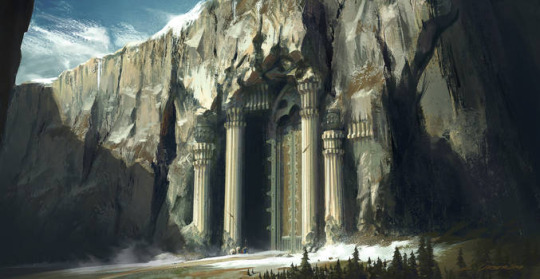
Worldbuilding. You either love it and spend all your time dreaming up rules rather than writing, or you hate it and try your best to avoid it despite writing fantasy or scifi.
Or you are in the middle, which is where you should be. You have a healthy appreciation for what makes worldbuilding so special, but you also don't obsess over it.
Worldbuilding does not need to be complicated to be effective, as I've harped on a few different times now. So how do you strike the right balance? Let's take a look.
As always, this is just my opinion based on my own efforts creating The Eirenic Verses. You can disagree and that is fine. However, I hope you'll consider thinking about what I offer here as you craft your own world.
A lot of what people focus on when worldbuilding is not what the audience cares about.
Very few people like to read a book littered with random terms they have to keep track of. We want to build a unique world, but we also don't want to throw such an extreme amount of lore at our readers that they tune out.
When worldbuilding, we want to consider the cognitive load on our audience. This is how much information the reader needs to remember throughout your story so that they can follow along.
Cognitive load includes things like:
Character names and appearances
Relationships between characters
Place names, such as cities and countries
Unique mythological creature or fauna
Backstory, including mythology and folklore
Language names
The general plot (who is the protag, who is the enemy, etc)
Magic usage (who has the power, how they acquire it, any conditions it comes with, etc)
Power dynamics between characters, countries, and so on
Political systems, if included
Even in the most barebones fantasy story, this is a lot to remember. As such, we need to consider what is most important for our readers to generally understand the plot and emphasize this, letting the rest serve as background information that is not quite as essential. The more emphasis we put on something, the more we direct a reader's attention.
At the same time, we want to create a world that feels lived-in and interesting so that readers want to know more. How do we do this?
Consider what you think about foreign countries in our world.
Most of us will have a general concept of a country but only will think about the specifics if it is currently relevant.
Let's take Japan for an example. (I'm a bit of a weeabo, okay?) Here is what I personally think about when I imagine Japan, in order of what I consider important.
Japanese cuisine (sushi, ramen, ochazuke, sake, lots of rice dishes, seafood)
What the people are like according to my own stereotypes/cultural perceptions (polite, quiet, respectful, hardworking, punctual)
Climate and geography (temperate, island country, volcanos, mountains, beaches)
Unique flora and fauna (cherry blossoms, flowers, Nara deer, giant salamanders, pretty birds)
General landmarks, but not necessarily specifics (castles, temples, busy cities, red bridges, torii gates)
Clothing styles (kimonos, school uniforms, business suits, kawaii fashion)
Cultural icons (samurai swords, samurai armor, Shinto shrines)
General overview of the history (samurai, daimyo, feudal system, bushido, Meiji restoration)
Language, but not necessarily specifics of the language (Japanese, kanji, hiragana)
Religion (Buddhism and Shintoism)
Folklore (ghosts, kami, tsukumogami, evil spirits)
Any festivals I might know of (cherry blossom festivals, moon viewings, Obon)
Your own list may have these in a slightly different order, but it's probably what you most think about.
Notice that you will likely not think about these things:
Political system
Specifics of the language
Interpersonal hierarchies
International relations
Specific landmarks
Specific historical events
Famous figures
So why do we think like this? Because in real life, we also have a cognitive load that we must balance with things that are more relevant to our everyday lives.
If I tried to memorize specific details of every country in the world, I would go insane. I have better things to do, so I create a general image of a country based on pictures I've seen, people I've met, food I've eaten, and so on. You do the same thing.
To be realistic, you do not need to be specific. You need to approach worldbuilding the same way people generate their world knowledge: basic concepts and visual imagery.
What to emphasize in worldbuilding
So let's break this down on what you want to think about when creating a world.
Food is one of the most accessible elements of a culture.
Food is how many people learn about different cultures for a simple reason: if you have the ingredients, you can cook food from anywhere. You don't need to be introduced to it by a native of that culture.
Plus, humans tend to like food. We kind of need it to exist.
Think about these things when considering national cuisines and eating habits of your fantasy world:
Do they have spicy food? Bland food? Heavy hearty dishes?
Is most food served hot or cold?
What kind of spices and vegetables do they use? Root vegetables, beans, cinnamon? Salt?
What type of meat do people eat (if any)? Seafood, poultry, beef, pork?
How is bread prepared? What is it made of? (Look, nearly every culture has some sort of bread, we love carbs)
What about pasta? Does that exist here?
Are desserts important? What are they made of?
What kinds of drinks do they have? Coffee, tea, milk, lemon water?
Is alcohol a thing? What kind of alcohol? How often do people drink? Are there bars?
How often do people eat, and when? Do they have the typical three square meals, or do people eat kinda whenever they feel like it?
Do people prepare food at home or are there restaurants?
Are communal dinners common?
Cultural stereotypes provide tension and can help craft your characters.
Are people in your culture known for their boldness? Their cunning? Their resilience? Their standoffishness? Their fiery tongues, or their passive-aggressive jabs?
You can play with a lot of this, either confirming or denying the assumptions through your characters.
Landscape gives us an idea of where we are and what to expect.
Landscapes are some of my favorite aspects of worldbuilding rather than intricate magic systems and political concepts. Readers get a good sense of environment when you focus in on landscape and how it impacts the characters. You can also build a culture off your landscape, such as how certain geographic features may influence peoples' attitudes and lifestyles.
For example, a coastal landscape will have beautiful views of the ocean, sparkling beaches, and maybe tall cliffs. Being a fisherman may be seen as an honorable but dangerous profession. People might cliff dive for fun.
Mountainous areas may produce cultural enclaves, especially in a fantasy setting where everyone is more isolated. One mountain town may have a completely different vibe than the town over.
Flat, wide-open plains mean people can spread out, but since moving from one place to another is easier, there may be a more cohesive culture.
An area with caves will have a sense of mystery and fear; there may be a lot of superstitions about the caves.
A swampy area can also be very mysterious as there are so many places to hide out and a lot of dangerous animals.
Climate influences how people behave.
Hot climates make people need to conserve energy, so they may take afternoon naps in the worst of the heat. They might value relaxation and calm over industry and productivity because bro, have you ever tried to even walk outside in the Florida heat? Shut up and get me air conditioning.
Cold climates make people need to stay active to stay warm, but they can also produce a sense of isolation. Think about how outdoorsy the Finnish are but how they looove their personal space.
Temperate climates are probably a bit more even-tempered, but as weather changes get more extreme, people will vary their behaviors based on the seasons: spending more time outdoors during summer but holing up during winter. The culture may emphasize hospitality because people need to rely on one another to survive, and they have time to meet their neighbors during the summer.
I am very partial to temperate climates, being from the American Midwest. We're known for being nice and hardy people. You should come visit.
Flora and fauna help the world feel real.
When I worldbuild, I often base my cultures on a real place and what kinds of animals or plants are there. For example, Breme is based on Mongolia so I have herbivores, big raptors, and a lot of grasses.
A warm climate will have lots of reptiles. Sea life will be important in a coastal area. Swamps might have big predators. Mountains will have hardy creatures that can climb. A savannah area will have huge herbivores and fast, hungry predators.
General cityscapes or villages are great for providing a sense of place.
Do people build low spread-out cities or tall rickety homes? What kinds of building materials do they use? Are there lots of markets, bars, apocetharies, temples or churches? What do homes look like here? What are any unique architectural features?
This gives a sense that we are in a different but specific world that has a rich culture.
Clothing tells us what people prioritize.
Cold places will have lots of layers. Hot places will have soft draping outfits or very skimpy outfits. Natural materials that are easily available will make up the majority of the clothing in a fantasy setting. You wouldn't have people wearing cotton in a place that doesn't grow cotton. If there are lots of sheep, people will wear wool. If there's lots of cattle, people will wear leather.
You can also think about adornment. Is jewelry common? What type? Why is it important? Is it a status symbol, a way to keep wealth, or perhaps ways to honor ancestors?
Cultural icons demonstrate what the society values.
A warlike culture will prioritize weaponry. A pacifist culture will think about art and music. A nomadic culture may have a rich oral tradition. An agrarian society will emphasize farming rituals.
Think of a few things that symbolize your society, whether that's musical instruments, weaponry, textiles, statues, or jewelry. Consider how those traditions could have come about and why.
Folklore and mythology offer an offbeat but important sense of history.
Folklore is often tied up with many other factors of a society, such as their religion, landscape, history, and overall values.
For example, the Japanese believe items survive for over a century gain a kami, or spiritual essence. This shows that the Japanese cherish their long history and their material culture, and it also infuses their Shinto belief into folklore.
You can also think about cryptids or ghost stories. Isolated and difficult terrain often makes people think of monsters lurking in the woods. Areas with lots of caves will have myths about what is down there. Coastal areas develop myths about ghost ships.
Idioms, turns of phrase, and gestural quirks tell us more about the culture without overwhelming readers.
This one can be more challenging (I haven't done much with it) but if you can manage it, you'll have a very rewarding story.
I'm not talking about making a whole new language here, but rather about idioms and turns of phrase. Think about all the fun idioms that English has, like "beating around the bush" or "break a leg." Without cultural context, you can't understand them, so you'll have to incorporate an explanation without actually stating it.
For example, you can have a character say "the horses are running fast" as they look out the window to see a sheet of rain. We can guess from this that the idiom is rain = horses, so lots of rain = fast horses. We'll understand from this that this culture probably loves horses; maybe they're a formerly nomadic race.
Gestures, like whether people give thumbs-up, point with their index, or bow with their hands to their chest all give us a feeling of the culture without being overwhelming.
What not to emphasize
Now that we've gone through some things to focus on, let's talk about what you don't need to make up for your world.
A whole-cloth language
Please, you don't need to create brand new words for things that exist in our world. You can reference a language, but do not make people memorize nouns they don't need.
Don't even make up the language at all. Say there's a language and then write the rest of it in English.
Made-up languages are irritating for readers because they want to focus on the characters and plot, not mysterious words they need to translate.
It's possible to make languages interesting without going into specifics. For example, the Bas-Lag trilogy by China Mieville has a species that communicates in clicks but the species can also learn human languages if necessary. There's a language called Salt that's basically the common tongue blended from everything else.
Do we need to know how Salt works? No. Doesn't matter. We're told someone is talking in Salt, or they're learning it, or they switch to it when meeting someone from a different culture. That's plenty.
Specifics of a magic system
You're not going to instantly summon up all the rules of magical realms when you visit a new country; you might not even know them. And your readers won't be too interested in them either.
For example, in The Eirenic Verses, I have High Poetry. Readers will come to know that this was a magical system where certain people given the power can recite a poem and whatever they speak comes true. Every poem can only be used once.
It was given by the goddess Poesy to a specific woman, Saint Luridalr. It was so successful that the goddess started giving it to more women and a whole religious system arose.
I don't need to explain exactly how it works because no one cares. Someone makes things happen by coming up with a poem: that's about it. We don't need to question whether certain rhyme schemes or meter or punctuation impacts anything. That's too technical.
If you've got pages and pages of notes on all the intricacies of the magical system, you have too much. Pare it down.
Political systems
Unless you're writing a fantasy where politics are absolutely critical to the plot, you can just reference the political system in passing and maybe elucidate a few key elements, like who the leader is, how power is transferred, etc. You don't need to go into all the specifics because most people are not going to care.
Hierarchies
Please don't lay out the entirety of an army's ranking system or how someone is promoted. Make up something consistent and stick with it, but don't go into exhaustive detail. People aren't going to sit and question whether a captain is above a lieutenant or how long it takes to become a general.
We'll know that a general is a big deal if the characters make it a big deal. We'll know who the head of the army is but we don't need to know how they got to that position.
Exact city layouts
You do not need to tell us where everything is in relation to one another. Tell us characters are moving from one landmark to another. You could say "this is across a bridge, this is up in the mountains, these buildings are right next to one another, these two buildings are in opposite ends of the city." That's plenty.
If somewhere is very far away, just show them travelling there and how long it takes. You don't need to measure it in miles or leagues or whatever. We will guess that if it takes them a week to walk there, it's pretty distant.
Economic systems
We just need the basics here: mercantile, capitalist, bartering, etc. We don't need to know if the coinage is pegged to a certain precious metal or if people invest their money or how people are paid. That's boring.
In my world, I have two currencies: quillim for Breme and barnals for Sina. What's the exchange rate? I don't know and don't care. How much is one quillim worth? One quillim is not a lot but 2,500 quillim is. How much is the average person paid? Doesn't matter. Do people keep lots of coins on them? No one is asking that. It's not important.
Transit systems
Tells us if the roads are cramped, spread out, nonexistent, poorly maintained. Tell us if there are road blocks or toll booths. Tell us if there are roving bandits. The more physical and sensory you can get, the more real it feels.
Few people care about the specifics of even their own transportation system. I know highways are fast, I know tollroads are expensive, I know parkways are pretty, I know some cities have weird turnabouts and dead ends. That's exactly what I need and what I care about.
That's what I've got for you today. If you liked this, maybe you'll consider checking out The Eirenic Verses series, which follows most of these principles.
I've been told that my fantasy writing is very approachable, even for those who don't usually like fantasy, specifically because I don't get too insane with my worldbuilding. So maybe you'll enjoy it too!

#fantasy worldbuilding#worldbuilding#fantasy writing#fantasy writer#writing community#creative writing#writeblr#writeblr community#writing on tumblr#writing opinions#am writing#writers of tumblr#writer stuff#how to write#fiction writing#writing advice#writing tips#writing resources
157 notes
·
View notes
Text
one of my favorite tropes is when a hot and sexy knight takes off their helmet and there’s a hot and sexy (and sweaty!) person underneath who has to readjust their hot and sexy hair (bonus points if they are somehow covered in blood??? yeah???)
#looks like they could kill you and could kill you <3#hehe butterflies in the tummy amirite????#mira.txt#writeblr#writer#writing#writers on tumblr#writing community#fantasy writer#writing things#creative writing#bookblr#booklr#reader#reading#trope#fantasy#knightcore#knight#fantasy trope#format / text.#about / writing.
589 notes
·
View notes
Text
100 Vocabulary Words for Gothic Fiction | For Writers

Hello Writers! I've put together a list of 100 words to help you expand your vocabulary for writing gothic fiction in October. I categorized the words for easy reference. I did some research using thesauruses and dictionaries to compile this list for you. I hope you find it helpful! 👻🎃
Atmospheric Words
Tenebrous - dark and gloomy
Oppressive - overwhelming and unpleasantly powerful
Ominous - suggesting evil or harm is imminent
Eerie - strange and frightening
Uncanny - mysterious and unsettling
Nefarious - wicked or criminal
Malevolent - having evil intentions
Sinister - giving the impression of evil
Melancholy - deep sadness
Lugubrious - mournful or dismal
Sombre - dark and gloomy
Dreary - dull and depressing
Desolate - empty and lonely
Bleak - cold and depressing
Dank - unpleasantly damp and cold
Character Descriptions
Pallid - abnormally pale
Gaunt - thin and bony
Haggard - looking exhausted and unwell
Cadaverous - corpse-like
Wan - pale and sickly
Spectral - ghost-like
Enigmatic - mysterious and difficult to understand
Brooding - appearing darkly thoughtful
Tortured - suffering mentally or physically
Macabre - disturbing due to focus on death or injury
Architectural Features
Gothic - relating to medieval style architecture
Dilapidated - in a state of disrepair
Decrepit - worn out or ruined due to age
Crumbling - breaking into small fragments
Decaying - rotting or decomposing
Ramshackle - in a state of severe disrepair
Crypt - underground room or vault
Turret - small tower on a building
Parapet - low protective wall along the edge of a roof
Buttress - structure built against a wall for support
Supernatural Elements
Apparition - ghost or spirit
Phantasm - figment of the imagination
Specter - ghost or phantom
Wraith - ghost or spirit
Revenant - person who returns as a spirit after death
Ethereal - extremely delicate and light
Otherworldly - belonging to an imaginary or spiritual world
Paranormal - beyond normal explanation
Preternatural - beyond what is normal in nature
Occult - supernatural or magical
Emotions and States of Mind
Dread - great fear or apprehension
Foreboding - fearful apprehension
Trepidation - fear or anxiety about something that may happen
Anguish - severe mental or physical pain
Despair - complete loss of hope
Melancholia - deep and long-lasting sadness
Hysteria - exaggerated or uncontrollable emotion
Delirium - state of confusion and hallucination
Madness - state of severe mental illness
Obsession - persistent disturbing preoccupation with an idea or feeling
Gothic Settings
Moor - area of open, uncultivated upland
Wasteland - barren or desolate area
Labyrinth - complex maze-like structure
Catacomb - underground cemetery
Dungeon - dark underground prison
Mausoleum - building housing a tomb or tombs
Sepulcher - small room or monument where a dead person is laid
Necropolis - large cemetery, especially an ancient one
Citadel - fortress that commands a city
Monastery - building occupied by a community of monks
Weather and Natural Phenomena
Tempest - violent windy storm
Miasma - unpleasant or unhealthy smell or vapor
Fog - thick cloud of tiny water droplets
Mist - cloud of tiny water droplets in the air near ground level
Gloom - partial or total darkness
Twilight - soft glowing light from the sky when the sun is below the horizon
Umbra - the fully shaded inner region of a shadow
Penumbra - the partially shaded outer region of a shadow
Crepuscular - resembling twilight; dim
Tenebrous - dark, shadowy, or obscure
Literary Devices and Narrative Elements
Foreshadowing - warning or indication of a future event
Omen - event regarded as a portent of good or evil
Portent - sign or warning that a momentous or calamitous event is likely to happen
Harbinger - person or thing that announces or signals the approach of another
Presage - sign or warning that something will happen
Doppelganger - look-alike or double of a living person
Grotesque - comically or repulsively ugly or distorted
Gothic double - character representing the duality of human nature
Unreliable narrator - narrator whose credibility is compromised
Frame narrative - story within a story
Liminal Spaces and Concepts
Threshold - strip of wood or stone forming the bottom of a doorway
Liminal - occupying a position at, or on both sides of, a boundary or threshold
Betwixt - in between
Interstitial - of, forming, or occupying interstices (small spaces between things)
Twilight zone - undefined or intermediate area between two distinct states
Purgatory - place or state of temporary suffering or expiation
Netherworld - imaginary subterranean world of the dead
Abyss - deep or seemingly bottomless chasm
Void - completely empty space
Chthonic - concerning, belonging to, or inhabiting the underworld
Miscellaneous Gothic Terms
Sublime - of such excellence, grandeur, or beauty as to inspire awe
Ineffable - too great or extreme to be expressed or described in words
Eldritch - weird and sinister or ghostly
Atavistic - relating to or characterized by reversion to something ancient or ancestral
Numinous - having a strong religious or spiritual quality; indicating the presence of a divinity
Happy writing, and Happy October! 📜🕯️- Rin T.
#GothicFiction#WritingTips#VocabularyBuilding#DarkLiterature#AspringAuthors#thewriteadviceforwriters#writeblr#writing#on writing#how to write#writers and poets#writers block#creative writing#writing tips#writers on tumblr#authors#author#book writing#authors of tumblr#women writers#writerscommunity#writer#authors on tumblr#writersblock#fantasy writer#resources for writers#helping writers#writers#writerslife#writersociety
2K notes
·
View notes
Text
50 Fantasy Prompts: Cultures and Societies. Writers Save this!
1. Luminae
- A society that worships light and revolves around bioluminescent creatures.
- Gesture: Raising both hands to the sky and opening palms to signify receiving light.
- View: Light is considered the purest form of energy and the ultimate source of life.
2. Mistral Nomads
- Wind travelers who harness the power of the breeze for navigation and communication.
- Gesture: Whispering into a small vial and releasing it into the wind, symbolizing sending a message.
- View: The wind carries the voices of ancestors and guides the living.
3. Veilwalkers
- Inhabitants of the mist who can see and manipulate spirits.
- Gesture: Drawing a veil across the face to communicate with spirits.
- View: The world of the living and the dead are separated by a thin veil that can be crossed.
4. Starforged
- People born under specific constellations with unique abilities tied to their birth star.
- Gesture: Touching a constellation tattoo to activate its power.
- View: Stars are the eyes of the gods, watching over and guiding them.
5. Shadecloaks
- Masters of shadow magic, living in perpetual twilight.
- Gesture: Merging fingers into the shadows, symbolizing blending into the darkness.
- View: Shadows are protective, hiding them from danger and giving them strength.
6. Seraphians
- Winged beings who consider themselves guardians of the skies.
- Gesture: Unfurling wings in a greeting, showing trust and openness.
- View: The skies are sacred, and flight is a divine gift.
7. Pyrosages
- Fire-wielders who live in harmony with volcanic landscapes.
- Gesture: Holding a flame in one hand while placing the other hand over the heart, symbolizing passion and life.
- View: Fire is a cleansing force, both destructive and renewing.
8. Aquafolk
- Ocean dwellers with the ability to breathe underwater and communicate with marine life.
- Gesture: Creating ripples in water with a fingertip to convey emotions.
- View: Water is a mirror of the soul, reflecting true feelings and intentions.
9. Silvan Elves
- Forest guardians who blend seamlessly with their environment.
- Gesture: Touching foreheads with a leaf, symbolizing unity with nature.
- View: All life is interconnected through the roots of the great tree.
10. Necrochanters
- A culture deeply connected to the afterlife, able to communicate with and summon spirits.
- Gesture: Drawing a circle with ashes to summon spirits.
- View: Death is not the end but a transformation to another state of being.
11. Stonekin
- Rock-like beings who can manipulate earth and stone.
- Gesture: Pressing a hand to the ground to communicate with the earth.
- View: The earth holds ancient wisdom and the memories of their ancestors.
12. Aetherians
- Masters of air magic, capable of floating and flying at will.
- Gesture: Raising arms and fingers to mimic the flow of air currents.
- View: The air is filled with invisible threads that connect all living beings.
13. Chronomancers
- Time-benders who can manipulate past, present, and future.
- Gesture: Tapping a timepiece rhythmically to alter time flow.
- View: Time is fluid and can be molded to fit the needs of the moment.
14. Dreamforgers
- People who can enter and manipulate dreams.
- Gesture: Weaving fingers in intricate patterns while in a trance.
- View: Dreams are a bridge between realities, holding power and prophecy.
15. Sunseekers
- Pilgrims who follow the path of the sun, gaining strength from its light.
- Gesture: Holding a hand above the heart to swear oaths under the sun’s gaze.
- View: The sun’s light is a witness to all promises, giving them sacred weight.
16. Frostborn
- Ice-dwellers with control over cold and frost.
- Gesture: Exhaling a cold breath to signify agreement or truth.
- View: Ice preserves and protects, holding the essence of life.
17. Songhearts
- A musical culture that uses songs and sound for magic.
- Gesture: Placing a hand over the throat and singing a single note to show sincerity.
- View: Music is the language of the heart and the most honest form of communication.
18. Runecarvers
- Inscribers of powerful runes that grant various abilities.
- Gesture: Tracing runes in the air or on surfaces to cast spells.
- View: Runes are the written words of the gods, containing immense power.
19. Stormcallers
- Masters of weather, able to summon and control storms.
- Gesture: Raising a staff to the sky to summon storms.
- View: Storms are the breath of the gods, bringing both fury and renewal.
20. Plainsriders
- Nomadic horsemen known for their speed and agility.
- Gesture: Drawing a circle in the dirt with a foot to mark territory or signal peace.
- View: The open plains are a vast, sacred expanse that must be respected.
21. Mycologians
- Mushroom-like beings who can communicate through spores.
- Gesture: Spreading spores by tapping a mushroom cap to communicate.
- View: Fungi are the bridge between life and decay, recycling energy.
22. Glimmerfolk
- Glittering, gem-encrusted people who can harness the power of precious stones.
- Gesture: Touching gemstones to channel their energy.
- View: Crystals are vessels of ancient power and knowledge.
23. Thornclad
- A warrior culture clad in thorny armor, known for their fierce combat skills.
- Gesture: Clasping hands with thorned gloves to signify a bond or agreement.
- View: Pain and resilience are intertwined, symbolizing strength.
24. Celestials
- Star-born beings with a deep connection to the cosmos.
- Gesture: Drawing constellations in the air with glowing fingers.
- View: The night sky is a map of destiny, guiding their every action.
25. Inkshapers
- People who can bring drawings and tattoos to life.
- Gesture: Drawing a symbol on their skin to activate a spell.
- View: Ink and art are extensions of the soul, capable of bringing thoughts to life.
26. Mirageweavers
- Desert dwellers who can create illusions and mirages.
- Gesture: Waving hands to create illusions and mirages.
- View: Reality is fluid and can be shaped by perception and will.
27. Echoers
- A culture that communicates and fights using echoes and soundwaves.
- Gesture: Clapping or snapping fingers to create soundwaves for communication.
- View: Sound is a powerful force that can shape the world around them.
28. Ironveins
- Metal manipulators who can shape and control metal at will.
- Gesture: Clenching fists to channel metal manipulation.
- View: Metal is a living force, constantly evolving and reacting.
29. Wyrmkin
- Dragon-like people with scales and the ability to breathe fire.
- Gesture: Exhaling a plume of smoke or fire to show respect or power.
- View: Dragons are the ultimate beings, embodying wisdom and might.
30. Duskborn
- Night-dwellers who gain strength from the moon.
- Gesture: Holding a candle to their chest, symbolizing the light within the darkness.
- View: Darkness is not to be feared, but embraced as a part of the natural cycle.
31. Crystalhearts
- A society with crystalline bodies that can refract light and energy.
- Gesture: Touching their heart crystal to show honesty and purity.
- View: Crystals are the heart of their being, reflecting their true selves.
32. Skyforgers
- Builders of floating cities and airships.
- Gesture: Hammering an invisible anvil to craft objects from thin air.
- View: The sky is a forge, and they are its smiths, creating wonders from the air.
33. Leafkin
- Plant-based beings who can photosynthesize and communicate with flora.
- Gesture: Placing a leaf in the palm to connect with nature.
- View: Leaves and trees are the lifeblood of the earth, nourishing all.
34. Sandshapers
- Desert people who can control and shape sand.
- Gesture: Drawing patterns in the sand to communicate or cast spells.
- View: Sand is a canvas for their magic, constantly shifting and changing.
35. Moonshadow Elves
- Elves who live in the shadows of the moon, skilled in stealth and night magic.
- Gesture: Casting moonlight on their face to invoke lunar power.
- View: The moon is a guide and protector, influencing their magic and lives.
36. Bloodrunes
- Warriors who use their own blood to inscribe powerful runes.
- Gesture: Pricking a finger to draw blood and create runes.
- View: Blood is the essence of life, and through it, they gain power.
37. Dreambinders
- People who can link their dreams to reality.
- Gesture: Twining fingers together to weave dreams into reality.
- View: Dreams are powerful forces that can shape and change the world.
38. Thunderclans
- Tribes who worship and control thunder and lightning.
- Gesture: Stamping feet or clapping hands to summon thunder.
- View: Thunder is the voice of the gods, a call to action and power.
39. Feywilders
- Inhabitants of the fey realm with unpredictable and chaotic magic.
- Gesture: Dancing in a circle to invoke fey magic.
- View: The fey are mischievous yet powerful, their magic a blend of chaos and beauty.
40. Mirrorborn
- People who can step through and manipulate mirrors.
- Gesture: Touching mirrors to travel or communicate.
- View: Mirrors are portals to other realities, reflecting infinite possibilities.
41. Wispwalkers
- Ethereal beings who guide lost souls.
- Gesture: Holding a wisp of light to guide lost souls.
- View: Wisps are guides and protectors, leading them through darkness.
42. Frostweavers
- Ice artisans who create intricate and magical ice sculptures.
- Gesture: Weaving ice crystals into intricate patterns.
- View: Ice is a delicate and beautiful force, capable of great power.
43. Starwardens
- Celestial knights who protect the realms from cosmic threats.
- Gesture: Drawing star maps in the air to invoke celestial power.
- View: The stars are guardians, watching over and protecting them.
44. Emberkin
- Fire-dwellers with control over embers and ash.
- Gesture: Snapping fingers to produce sparks and embers.
- View: Embers hold the remnants of fire’s spirit, representing both the end and beginning of the flame.
45. Oceanborne
- Sea nomads who can control the tides and waves.
- Gesture: Drawing water symbols in the air to summon sea spirits.
- View: The sea is a vast, living entity, a source of mystery and power.
46. Windwhisperer
- Communicators with the wind, able to send messages across great distances.
- View: The sky is a living entity, responsive to the voices of those who respect it.
- Gesture: Moving gracefully to mimic the flow of the wind.
47. Etherseekers
- Gesture: Holding out their hands to draw ether into themselves.
- View: The ether is a vast reservoir of magic, accessible to those who seek it.
48. Twilight Guardians:
- Gesture: Holding a lantern to light the way through twilight.
- View: Twilight is a sacred time, a bridge between day and night.
49. Windwalkers
- Gesture: Moving gracefully to mimic the flow of the wind.
- View: The wind is a messenger of the gods, carrying whispers of destiny and change.
50. Eclipsewatchers
-Gesture: Covering one eye while the other remains open to signify balance
- View: Eclipses represent the merging of light and dark, a time of balance and reflection.
#writer#writing#writer things#writerblr#writerscorner#writing inspiration#writing tips#author#writers and poets#ao3 writer#sci fi and fantasy#fantasy writer#fantasy writing#writing prompt#writer prompts#writeblr#writing inspo#writing help#writing resources#writers on tumblr#writer stuff#fantasy#fantasy series#amwriting#bookblr#fantasy books#writerscommunity#writers block
1K notes
·
View notes
Text
Questions I Ask My Beta Readers
"Did you like it?" just doesn't cut it when you're trying to get useful feedback, so here's some questions that get your reader really thinking about your work:
What are your general impressions after reading? How did you feel when the book ended?
(For fantasy/sci-fi) What did you find most confusing about the world? What did you find the most interesting? What do you want to know more about?
Were there any scenes that broke your suspension of disbelief? Which ones? Why?
Which chapters were the hardest to get through? Did you find yourself skimming the text at any point in the story?
Which character was your favorite? Which was your least favorite? Why? (Note that this question is best when asking multiple readers. If one person really dislikes a character, it could be personal preference. If multiple people can't stand a character for the same reason.... well, that's a problem you need to fix. Unless, of course, you want your readers to hate that character. Just make sure that their hatred enhances the reading experience instead of ruining it).
Did you get any characters confused or mixed up? If so, did this make the story hard to follow?
What was the most suspenseful moment in the book? What was your favorite moment of the story? What was your least favorite moment in the story? Why?
Which setting in the book was clearest to you as you were reading it? Which setting was the most difficult to envision?
Did you feel there was a lot of info dumping at any point? If so, where?
How do you feel about the plot? Were there any parts that confused you or seemed nonsensical/ illogical?
Did you feel any part of the story was predictable? Do you have any predictions for the next book(s)? If so, what are they? (Again, another question that's best when asking multiple readers. Be aware of your audience here. Some people, especially those who read a lot, are really good at predicting where stories are going to go. If those people are able to guess what happens next, that might actually be a good thing, because it could indicate that your story is progressing logically. Too much predictability is a problem, but a little isn't bad. This question is just to make sure the plot twists/progression aren't painfully obvious to most readers).
What plot holes did you find in the story so far?
Were you invested in the story? If so, at what point did you become invested? Did you lose this interest at any point? (The second point here is really good for determining whether you have a slow beginning. Sometimes readers might really like your story overall, but would not have gotten past the first few chapters if they were reading it for fun instead of as a favor for you. This happened to me last time I asked someone to read my work, and it made it clear how much of the beginning I needed to rewrite entirely).
Any other questions or comments?
#creative writing#writing#novel writing#writers of tumblr#writers on tumblr#writing advice#writing community#fantasy writer#fantasy writing#writer stuff#on writing#writer#writeblr#writing problems#writerscommunity#fantasy novel#fiction#novel editing#novel#beta reader
3K notes
·
View notes